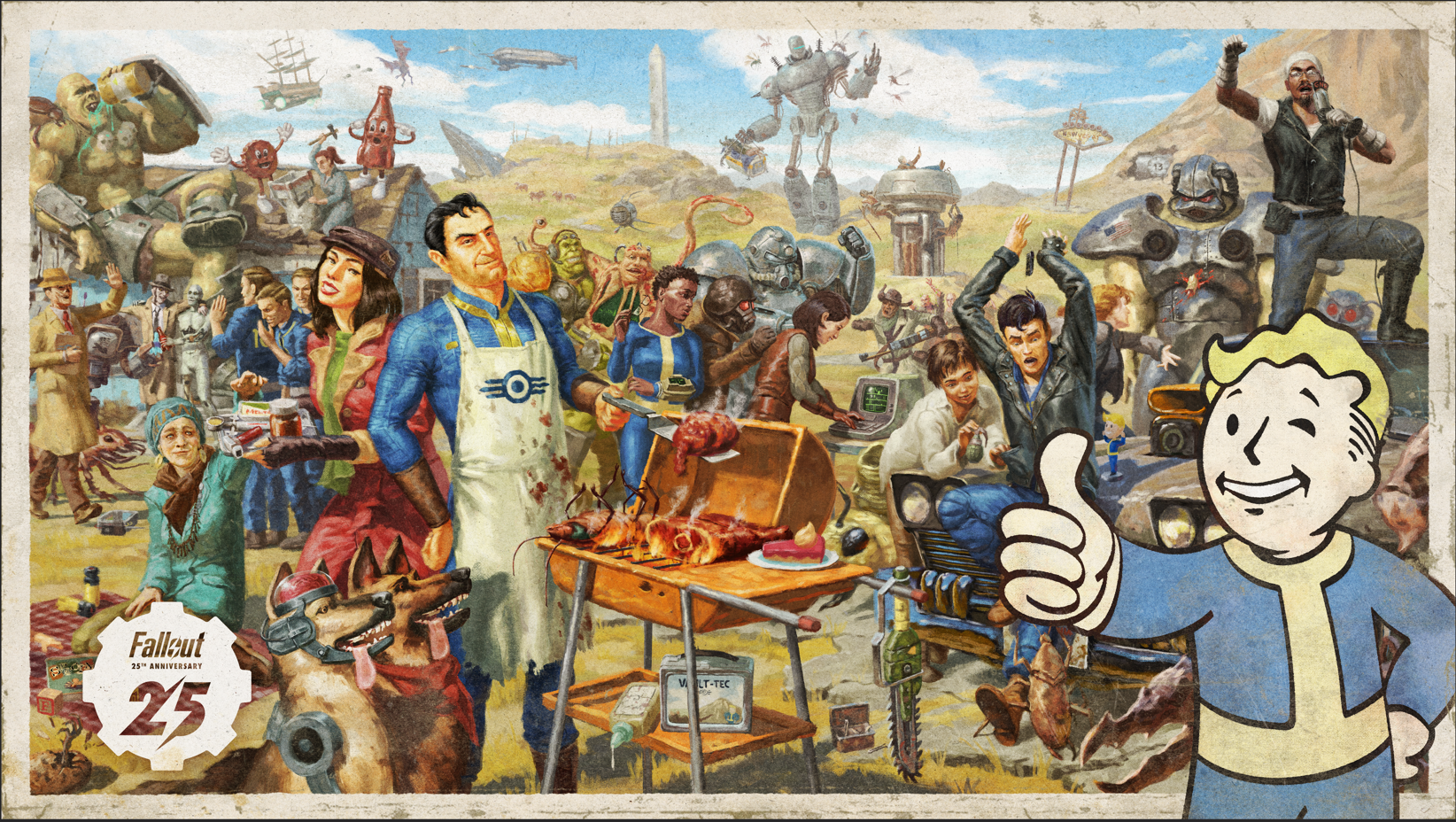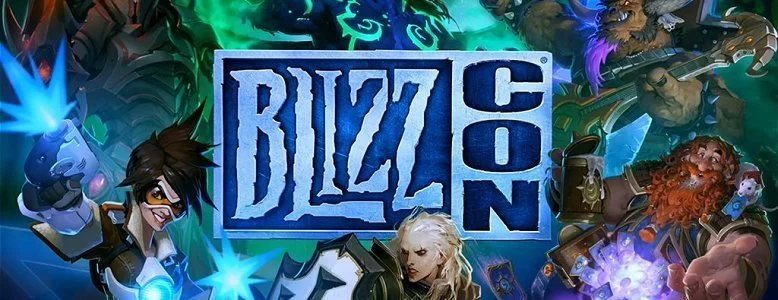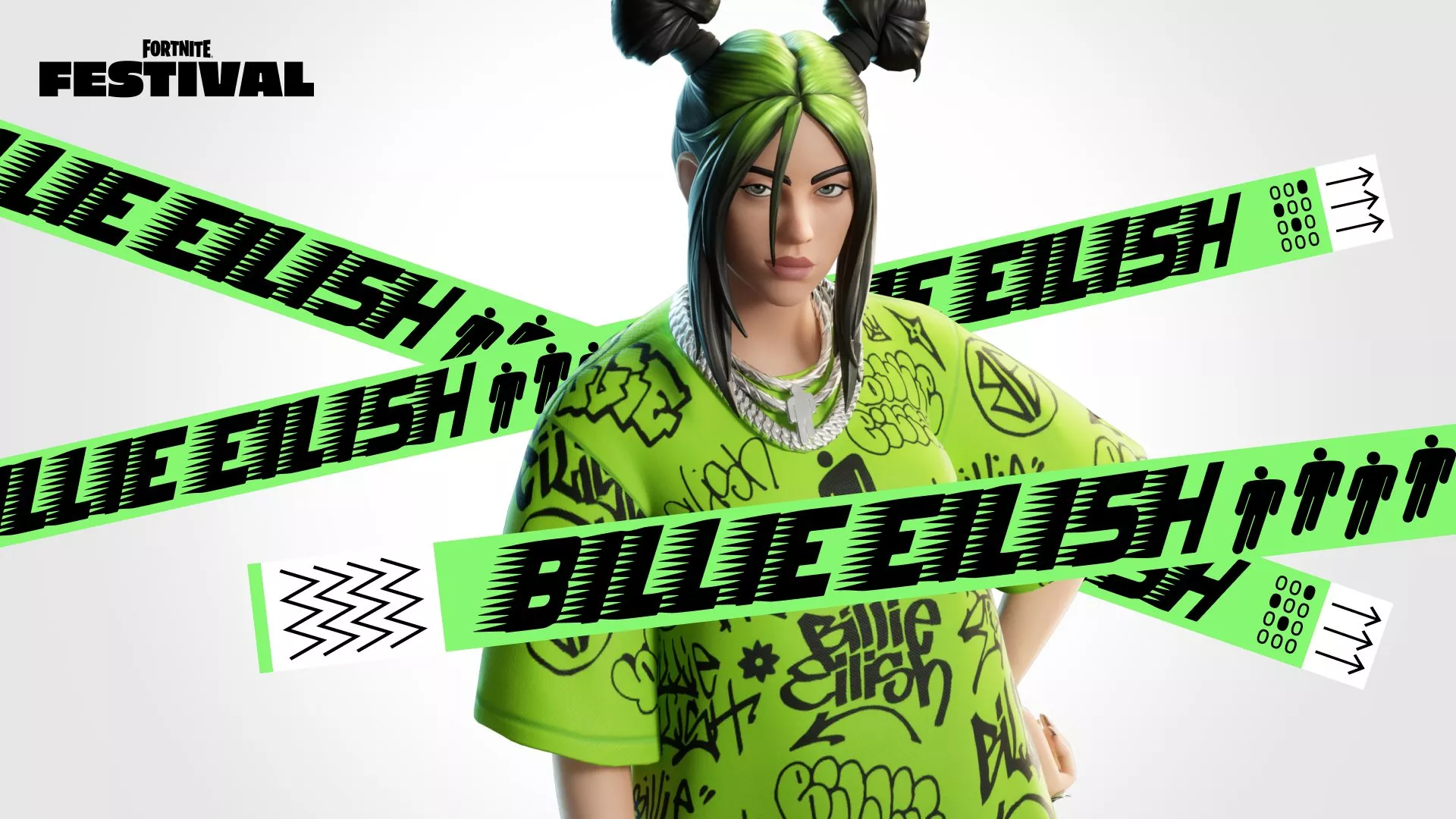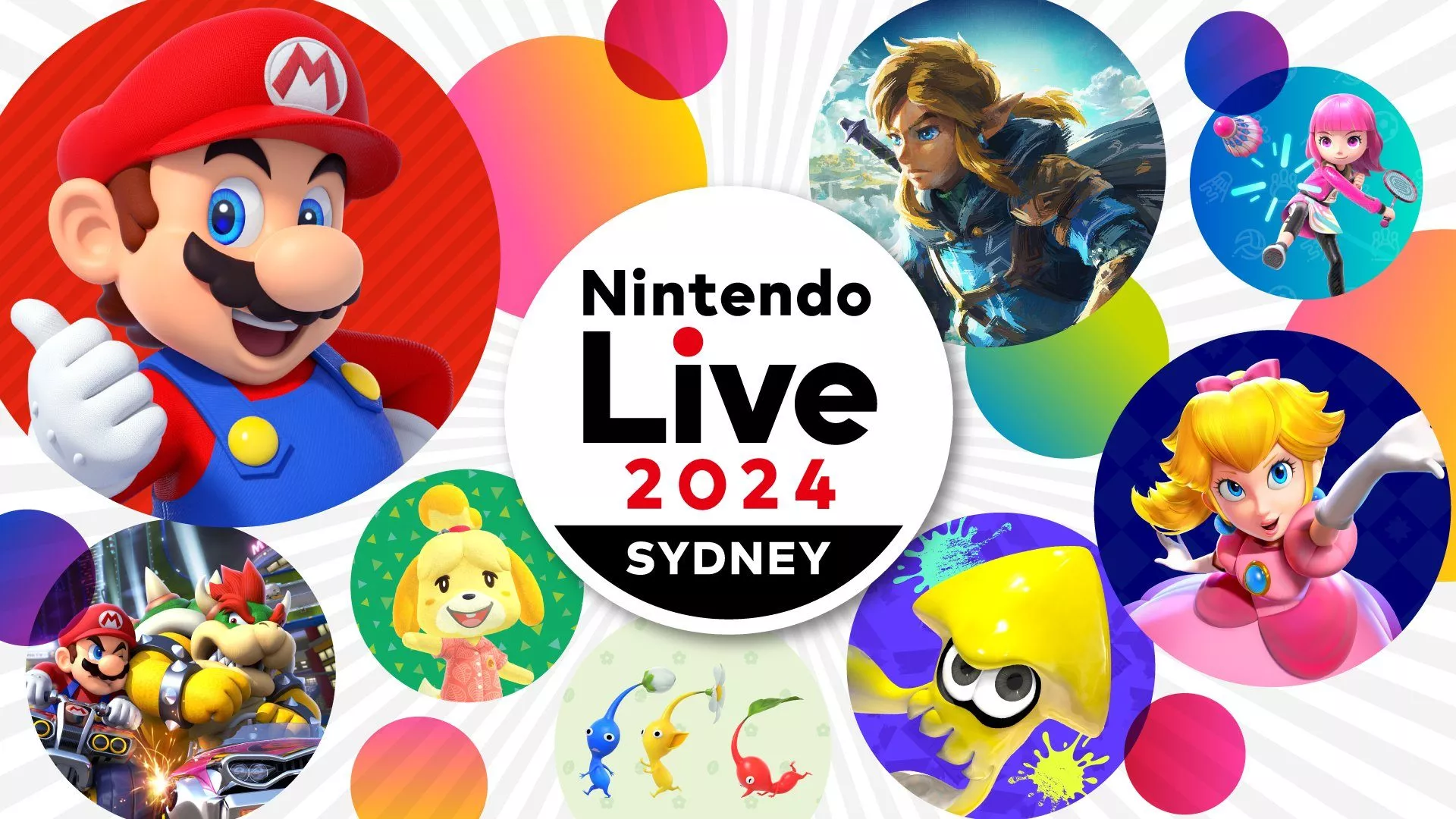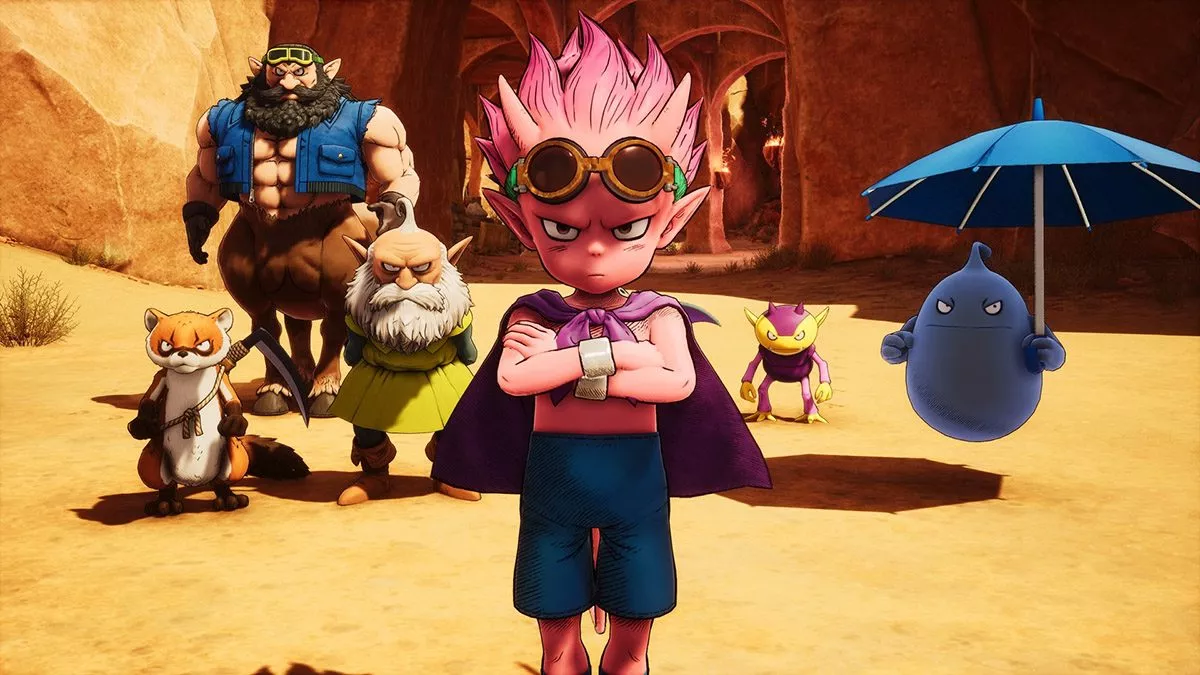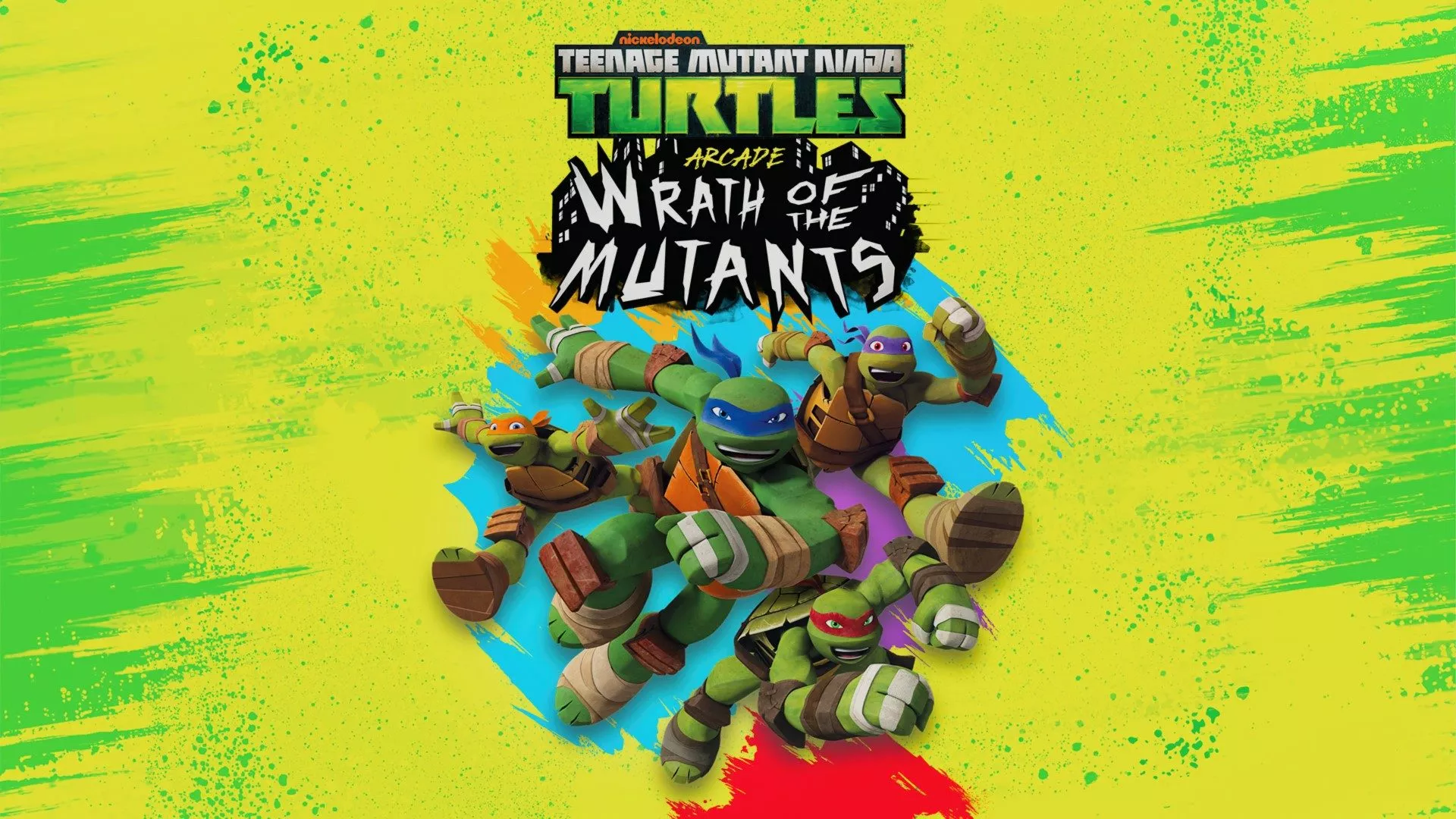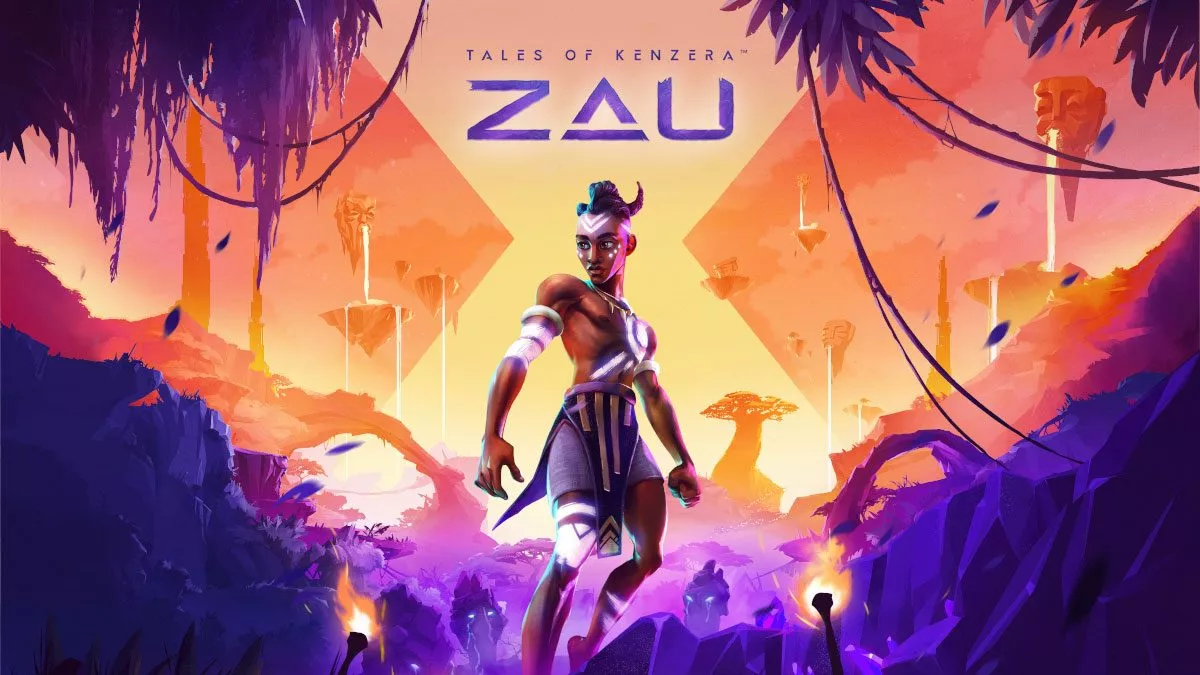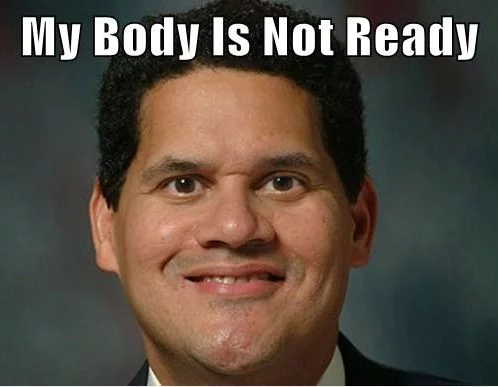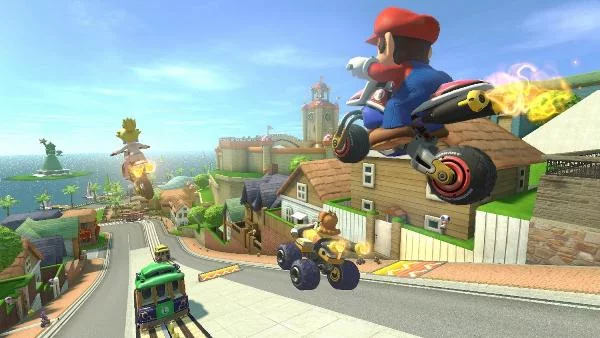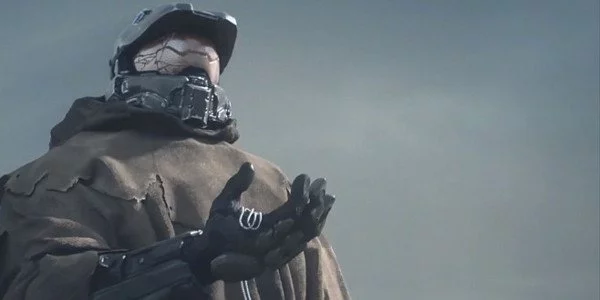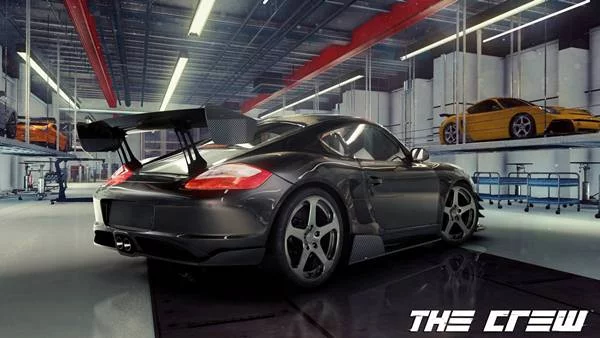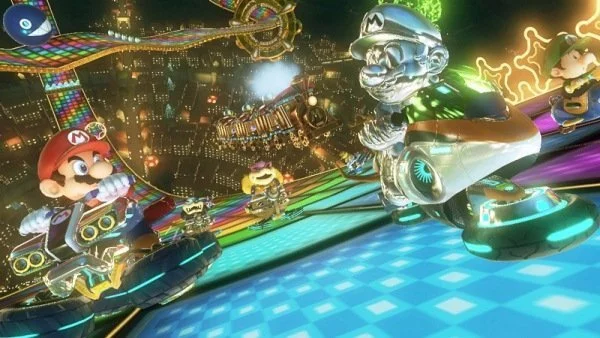Microsoft versus Sony, Battlefield versus Call of Duty and Forza versus Gran Turismo. These are some of the rivalries that can get people talking about console wars. “Game On or Game Over” is your place to get inside the minds of Nicholas and Andy as they seek to find the true meaning of gaming and tackle some of gaming’s most controversial subjects. Both are award winning authors – although the awards haven’t been mailed or created yet — but trust them. Would they lie to you?
Nicholas: Now I know that we’re still about a month out from E3 this year, but there’s a recent trend that I’d like to discuss from one of the major players in the industry that we’ve seen happen for a little while now. As the title suggests, I’m talking of course about Nintendo’s habit of seemingly revealing all their big news items weeks ahead of the E3 conference in either Nintendo Direct videos or just other smaller press releases. For example, last week we saw Nintendo release a video where a remote controlled Reggie Fils-Aime infiltrated Nintendo America’s head offices and announced an upcoming invitational Super Smash Bros. competition at E3. In addition, it was also officially confirmed later in the week that the long-rumoured belief of Pokémon Ruby and Sapphire receiving either a remake or a sequel, would actually happen with the announcement of Pokémon Omega Ruby and Alpha Sapphire.
So to kick things off this week, what do you think by this trend from Nintendo? Is it ‘cool’ of them to break the mould and not wait for E3, or does it seem like a stupid move that spoils the surprise come the E3 conference itself?
Andy: This is one of those topics where I truly have the advantage of looking at it from a complete neutral corner. While I was a big Nintendo fan in my younger days, to be honest I haven’t played a Nintendo game in quite some time. I’m talking double digit years here. The only games I’ve ever even remotely looked at were the Mario and Zelda games, other than that there’s just not much there that gets me even mildly excited. I’ve heard about the Nintendo Direct videos in the past but never put much thought into them really. So I’m not in the trenches and dissecting them like some people I know. You mention Nintendo breaking the mould and not doing things like other companies do. I would counter that with maybe the mould is broken and antiquated. Also, in my opinion, Nintendo really has never been about doing things that others do simply for the sake of doing it.
In the video game world E3 has become something of mythical proportions. During the week of E3, gamers are bashed over the head with information overload, trailers, reveals, gameplay, demos, interviews, press releases etc. It can be overwhelming and take a week or two to really digest everything that’s said. Maybe, just maybe, Nintendo has the right idea of bypassing the E3 hoopla and letting information trickle out when they dictate the right time is, versus opening the floodgate and just vomiting as much information as they can in a span of four days. I admit I look forward to E3, but at times I feel like I am missing things just due to the fact of how fast paced it is and how much information comes out of there.
As a gamer, would you rather have a nice steady stream of information from a company or do you prefer the E3 onslaught on information overload?
Nicholas: I think you’ve hit the nail on the head when you said, “Nintendo really has never been about doing things that others do simply for the sake of doing it.” Nintendo seem to have always been the industry leaders as far as innovation is concerned, even if it has meant that they’re not able to keep up with their competitors as far as hardware and software is concerned (think of the power of the Xbox One or PS4 against the Wii U, or games like inFamous against Super Mario 3D World).
To answer your question though, this is something I’ve thought about a little in the past, and for me, I think I’m a lot happier to receive frequent titbits of information from a developer/publisher rather than a massive information dump at one or two points throughout the year. We’ve mentioned the Nintendo Direct videos and I believe these are awesome ways to get information out to the gamers on a regular basis. Sure, Nintendo never runs them at a time that’s convenient for me to watch them live, but I appreciate that I can wake up the morning after a Direct video, go to Stevivor.com, and check out the string of articles that cover all the information that Nintendo have unveiled. I won’t lie, I also appreciate the fact that these Direct videos are hosted by the higher-ups of the company too, as it adds for a personal touch rather than merely conveying information via press release or a teaser trailer.
The point you raise about missing out on some information from E3 because of how busy and fast-paced the conference is, is certainly an opinion I share with you. I can’t pin-point an exact reason why, but I don’t get the same sense of anticipation and excitement from E3 as of late as I did a number of years back. That said however, I do suspect it is due to this reason of information overload. Last year, despite some great announcements like Watch_Dogs and The Crew, I came away from the conference with a sense of “meh” about it all. I can remember trying to check out all the announcements after work and it just seemed like there was far too much to catch up on, and at a certain point I honestly stopped caring about watching each of the new trailers or reading each of the articles.
This leads on to my next point. Late last week Microsoft seemingly followed in Nintendo’s footsteps of announcing new games a little prematurely, and revealed that Halo 5 would be coming to the Xbox One. This got me thinking – do you think it’s a much smarter move for major companies to tease gamers with what announcements they’ll be making at E3 a few weeks beforehand, so they generate that hype, and then come E3 (now that we’re prepared) and they give us all the details about said games/announcements? Does that make tracking new details easier and potentially fix the issue we mentioned above about being bombarded with announcements and in-turn, potentially missing out on all the new information?
Andy: Let me touch a little bit more on Nintendo and the Nintendo Direct videos before I delve into your other question. Sure Nintendo isn’t following the lead of almost every other publisher and waiting for these big conventions to relay news, but strategically I think it’s actually a good idea. Here’s why; by releasing Nintendo Direct videos on a set time they have control over that information and there’s a lot less “leaked” information about upcoming games, hardware, etc. It’s being released on their terms and under their control leaving very little speculation about what’s going on. Secondly, it’s a steady stream, they don’t go dark for months at a time. It’s on a fairly regular schedule so the guess work is also removed. While I am not a Nintendo fan or play their games, I can appreciate the way they get information out to their fans.
For me E3 is often a sense of excitement leading up to the big inevitable news that comes out of it, but once it’s over very rarely am I ever surprised by much – mostly because the weeks leading up to it are filled with “leaks” and whatnot so there is little in the way of surprise. More so though, it seems E3 (and most gaming conventions really) all follow the same format. Press are ushered into a room, several speakers get on stage and regurgitate canned information about the next latest and greatest game, then the press run to their corners and write up pretty much the exact same article and gamers are blasted with it over and over again. Then, we have the brave gamer who goes to a convention, spends a boat load of money for tickets, hotel, food and whatever else. They are queued up like cattle to get 5-10 minutes of hands-on with a game before they are ushered out. Or, that gamer wants to go see a panel presentation but it’s a popular panel so they have to wait in line for hours to make sure they get to see it.
With the amount of developers and publishers at these major conventions there’s simply no way anyone can keep up with the amount of information that pours out of there. Nintendo has sidestepped that entire problem and with the Nintendo Direct approach is basically saying “Look, here’s what he have right now.” They are simple and to the point. Microsoft seems to be taking a page out of that book, albeit not the full on individual press conferences, but with a more controlled way to disseminate their information. Last week saw then releasing quite a bit of news, from Halo 5, the Halo 1-4 Remastered collection, to the Xbox One without Kinect and changes to the Xbox LIVE Gold paywall. I like that Microsoft has done this actually, it’s a way of making sure that information doesn’t get lost in the hundreds of stories that will come out of E3, but it also gets them all the attention of the gaming world for a couple of days. It also makes me think that they have something bigger up their sleeve for E3 because there’s no way they want Sony to one up them there.
Like I talked about above, I have a love hate relationship with these conventions. I like that there’s a lot of news and hype, but it can backfire as well in terms of missed news coverage, a story gets lost in the shuffle, or a big moment doesn’t come across well and has the opposite effect. I once had a desire to attend one of these events just once to see what it’s like, yet the more I think about it now the more I don’t ever want to go to one. I believe you went to PAX Australia last year didn’t you? What did you think about your experience there, did you think it was worth it?
Nicholas: Ah yes, PAX Australia. I did attend the convention last year, and it seems like it I was one of the very few people who didn’t actually enjoy it. I’ve heard so many good things about the PAX conventions in the States, and I was really hoping that the first one in Australia would be the same, but to me it just seemed a little underwhelming. I had planned to attend a few panels that I thought were interesting and had scheduled them into my phone’s calendar and I was hoping to check out some new and upcoming games too, but literally none of those two things happened. Each of the panels had people waiting up hours in-advance to get in, and even some of those who had lined up beforehand didn’t get in. Now I don’t want to sound like an uppity or pretentious jerk, but there’s no panel that’s going to be great enough that I’d want to waste hours of my time waiting. As far as the games go too, and while this might just be a misunderstanding of mine, a lot of what was on show were indie games, and once again, not to sound like a pretentious jerk, but I’ve never really been interested much, or cared about, indie titles. Forgive me. What I did enjoy from the PAX Australia weekend though was catching up with friends within the media/community, and while what was on show at PAX was lacklustre, I did at least enjoy that it facilitated that social aspect.
I guess I should note, that after the disappointment that was PAX Australia 2013, and off the disappointment that I felt the EB Games Expo 2012 was too, I was starting to lose faith gaming conventions, but when the EB Games Expo rolled around last year I really enjoyed it. It had that social element I enjoyed from PAX, but it also had its fair share of new and upcoming games too to see and try. PAX Australia has been announced for 2014 and tickets went on sale a little while ago. If I do attend this year again it will be interesting to see how it turns out, both with my expectations from last year, but also with the things the organisers learnt from their first attempt.
Moving on though, you mentioned before the fact that in a lot of these conventions the media are giving preferential status and are ushered into and out of various press conferences and showcases so they can cover what’s going on. This then becomes the opposite for the general public/community who attend these events, who need to pay for their tickets and wait in line for ages for the chance to get their hands on a game like Battlefield 4 for example. In your opinion, do you think this is fair? Should the media be entitled to cut lines while those who paid to be there, and who, in most cases, probably are a lot more excited to be there, need to wait for their turn?
Andy: Oh that’s one of those million dollar questions isn’t it? I think a better way to phrase that though would be, should the media get a different experience with a new game than a gamer who purchases a ticket and stands in line for an hour? The answer you get will largely depend on who you ask. Speaking strictly as a gamer it’s a tough pill to swallow. If I paid however much for a convention ticket (I’m not sure what the normal prices for those are) and stand in line for an hour plus and get a short ten minute taste of a game only to hear a media member had an hour of hands on time – it doesn’t leave the best taste in my mouth. However, the flipside to that is, the media are the people that have a broad network of people that read/watch their coverage and actively seek out their opinions. To get the best coverage, they need to cater to the media to ensure that the most people as possible hear about their games. Whereas a typical convention attendee will spread news about a game through word of mouth but nothing that approaches that of a member of the media. So, while I may not like it or agree with it as a gamer, I understand the reasoning behind it.
There is another dirty secret about conventions and what is shown at them, teased and available to play. I think people tend to forget that demos, gameplay and features at conventions are very tightly controlled. Both Microsoft and Sony have had hands on games for people to try in the past only to find out that they were running on top of the line speced-out (IS THAT THE RIGHT WORD?) PCs. So while the game that was being played was the real deal, what it was being played on wasn’t close to what the end user would really be playing it on. On top of that there have been times where the games that is demoed looks nothing like the finished product, look no further than the Alien: Colonial Marines fiasco. While the charm of a convention is fun and you get lost in the new shiny games, I find it increasingly difficult to take what a developer says at face value anymore.
I remember watching and reading some things about E3 2011 when the Gears of War 3 hype machine was in full swing. The media had finished their stories for the day about how awesome GoW3 was and there was some video footage of parties at E3 and one of them was the Epic Studios party. I don’t remember which gaming site it was on, but they were going around the room and Cliff Blezinski grabs the microphone and starts chatting away and takes the camera guy on a tour of the party. It was funny in the Cliffy B sort of way, but the thing that really stuck out to me was all the members of the media that were there having free drinks and whatever else was being offered. Cliff looked at one journalist and said something along the lines of “Hey, great coverage let me know if you need anything tonight I’ll hook you up.” That conversation just struck me as a huge conflict of interest and didn’t feel right.
We’ve talked a little before about advertising, endorsements and what is a game journalist, but I don’t think we have really ever talked about the sometimes blurred lines that exists in the gaming world. These conventions are a perfect example when you see situations like I talked about above. Should it be acceptable for the people who should have an objective view on a game to go to parties, get free gifts, drinks, food or what have you from the developers/publishers at conventions like this? At the very least should this be something that is disclosed to people so it’s more visible?
Nicholas: Personally, I don’t think there’s a problem behind members of the media attending parties and getting free gifts/refreshments, and I don’t think there really needs to be an increased level of disclosure. As events editor for Stevivor I’ve attended multiple preview and launch events across the past two years, and at each one, the publisher always provides us with free drinks, food and sometimes even a goodie bag. Just because Electronic Arts shouted us with some free pizza and alcohol, or just because Microsoft decided to give us all a lanyard and shirt at an Xbox One preview event though doesn’t mean I’m necessarily going to review the game any better. Sure, I might talk up the event itself (and I’ve done this before, and I’ll do it every time if I enjoyed it), but there’s a big difference between enjoying an event and enjoying a game, and I think it’s important to differentiate this.
Sticking on this point, I attended a preview event for the upcoming EA Sports UFC game last week. It was hosted at a UFC gym, and in addition to playing the game, we also got the chance to get some actual MMA practice, as well as free food and drinks. Did I enjoy the event? Absolutely. Does it increase how much I like Electronic Arts as a publisher? Absolutely. Does it mean I’m necessarily going to give the game a good wrap? Not at all. I’d actually consider it a little poor if a publisher put on an event and didn’t include food and drinks, simply for the fact that you’re usually there for a few hours and if you have nothing in the way of refreshments it’s going to get a little uncomfortable(it’s also just simple hospitality too). It also This discussion raises the point of whether the readers will ever have faith in the media though, or whether we constantly need to prove that we’re impartial, but I think this is something best suited for another week’s article.
Returning back to what we mentioned earlier with regards to a publisher releasing a constant stream of updates throughout the year. If we keep with Nintendo, I’d like to look at the soon-to-be released Mario Kart 8. In the past few weeks, Nintendo have been absolutely crazy with the amount of reveals they’ve had for this game. We know some of the courses, we know some of the drivers, we know that the game will have a secondary screen function and they’ve also told us of a lot of the new features and items for the game too. In a recent Game On or Game Over article we mentioned how there’s a habit of publishers giving us too much information, and as a result it’s led to either games being over-hyped, or it’s ruined the surprise come release day. For me personally I’ve actively ignored all these mini-press releases, so for me, all these reveals from Nintendo have been pretty pointless. What do you think? You too have mentioned also keeping knowledge of a game and its features to a minimum prior to its release, so despite both Microsoft and Nintendo going to lengths to provide us with these little titbits, is it falling on deaf ears?
Andy: There has been a steady stream about Mario Kart 8 that’s for sure. For the most part it was the same right before Titanfall came out as well. A steady stream of levels, load-outs, titans etc. It was a game I planning on getting and already knew it was something I’d enjoy so I mostly avoided as much information as I could while it trickled out. Some games live by the creed of get as many trailers, game developer interviews, level demos, etc. as possible. Look at Watch_Dogs, that’s a game that has a good amount of videos and trailers as well. For fans that are going to get the game regardless, all these trailers, announcements and videos don’t really matter. I think that there’s a deluge of information evenly spaced out is to try and draw those gamers in who are on the fence about getting it. I think those are the people that all the hype is for, not the person that knows they are already going to get it and probably have the game pre-ordered already.
It may be more of a personal thing, but if I know without a doubt that there is a game coming out that I’m getting, I do try to avoid as much coverage as I can about it. When I see something in a game I want it to be a surprise and new, not a “oh that’s from the video” type reaction. Same goes for a growing trend of showing off the first 30 minutes to an hour of gameplay before the game is released. That makes no sense to me to be honest. Maybe that’s another reason why I am not overly interested in going to a convention or expo. I’d have a hard time deciding if I really wanted to play, or see anything about an upcoming game I am excited for. If it’s a game I am unsure about I’ll try and find some videos/articles about it to help me make up my mind and if I still can’t decide then I just hold off and wait for people I know to play it and see what they think.
Earlier we were talking about long lines, not getting to see the panels you wanted, media getting better access to things, and it made me wonder. If you were in charge of a convention and there was nothing stopping you, what changes would you make to a convention so it would be gamer-friendly and ensure that everyone who attended got their money’s worth? No holds barred cart blanche what would the Mazda-Con look like (aside from me being the keynote speaker of course)?
Nicholas: Oh man. That’s a seriously tough question! One of the biggest problems I have when I attend conventions is that there’s often too long a line for all the good content, and there’s not nearly enough units available for people to get through at a quick enough pace. I think the first and most important thing I’d focus on, is ensuring there are heaps of demo units available so queues are never too big a problem and you could get a whole lot of people in at once. As far as panels go, I’d really like to see an even spread of conversations take place, where it isn’t just media folk, but from all walks of life in the industry. Have some panels with community managers, have some with developers, some with publishers and others with community members (e.g. cosplayers). I’d also want to make sure that these panels were open and not restricted to seating in some form of auditorium. Give the presenters a microphone, turn up the speakers and make sure you can get everyone in who wants to listen rather than have people wait in line for a few hours and hope they can reserve a spot. It would be awesome if you could get the latest codes of upcoming games too. One of the aspects I didn’t like about PAX Australia was how indie-orientated it was, and of the ‘big’ games they had, I was only interested (partly) in Splinter Cell Blacklist. The indie market is important yes, but like me, it’s not something I think everyone is really interested in. There would also need to have rotary-powered sports cars everywhere. That would be a true Mazda-Con.
We’ve covered a whole lot this week, and I’d be lying if I said I expected to be planning my own conference at the end of this article when I started it talking about Nintendo jumping the gun on E3 this year. To end though I wanted to ask you, with Nintendo and Microsoft both changing the way they deliver news and announcements to gamers, and with all those off-putting aspects of conventions like waiting in lines, paying for tickets and having to be second-class to the media – do you ever see E3 becoming a thing of the past? How about at least as far as being a physical convention? If games are going digital, do you think announcement conferences like this one will eventually all be online?
Andy: Do I think E3 will become a thing of the past? No not really. It’s a great way to generate buzz and a venue where publishers, developers and other third parties are guaranteed that a lot of media will be present. So, for them it’s an easy one stop shop to get as much coverage as they can. I think it will always be an in-person convention as well due to the connections industry insiders can make with each other, and lets face it they are busy people and probably look forward to seeing friends from other studios there. What I’d like to see happen is, since E3 is the granddaddy of conventions, for it to do a couple things. First make it a week long (5 days). The first two days are reserved specifically for media, no gamers on the floor, in the booths, or anywhere inside the convention. This is the time that the media can do their interviews, gets hands-on with games and anything else that they need. Then, the next three days are all about the gamers. You know, those people who actually buy the games, t-shirts, collectibles and what have you. More demo units are available and not being taken up by the media, and gamers get a chance to actually talk to the developers while they are there. It would give people more time to experience more things. The issue of panels is a hard one though. I’m not sure the wait time/lines and small audience numbers will ever be able to be expanded and more friendly. Which is a shame because some of those panels offer some great dialog.
That’s not to say that Nintendo, Microsoft and Sony shouldn’t develop an online only type conference. If I was a developer, I’d seriously consider doing an “After E3 Breakdown” type of thing. During the week of E3 have fans email/tweet/Facebook questions to me. Then, the following week do a small series of answering their questions, bring in a couple game designers talk about levels, game mechanics, or whatever and either do a live Twitch style show, or a podcast type thing. In my opinion it’s the best of both worlds, you get the exposure at E3 but you are also able to connect with your fans and talk about the things they want to know about. For me, if a developer did something like that for its fans I’d be pretty impressed. I also think it’s a chance for the developers to know what their fans are thinking and connect with them in a new way.
I do believe that developers and publishers need to continually look for ways to connect with their fans and keep an open dialog with them, both in terms of what they like and what they don’t like. Heck it really doesn’t even have to be just E3 related, they could do it once every 3 or 4 months too and highlight different things. I think it’d be a fantastic opportunity and something I’d definitely watch and participate in. Something like this could potentially cut down on the number of “leaks” about games as well. While E3 is like a video game orgy for gamers, a more constant stream of information to keep the games at the forefront of everyone’s mind may be more beneficial. Even though I am not a Nintendo fan, I can see the benefit of what they are doing so maybe it’s not so much as Nintendo being premature, but the other players in the market not adapting and Nintendo is actually at the head of the pack in this regard.
We’d like to thank Cav for the idea behind this week’s article.
Tune in next time for the next instalment of Game On or Game Over. If you have any ideas for our next article, feel free to contact Andy or Nicholas on Twitter.
This article may contain affiliate links, meaning we could earn a small commission if you click-through and make a purchase. Stevivor is an independent outlet and our journalism is in no way influenced by any advertiser or commercial initiative.


